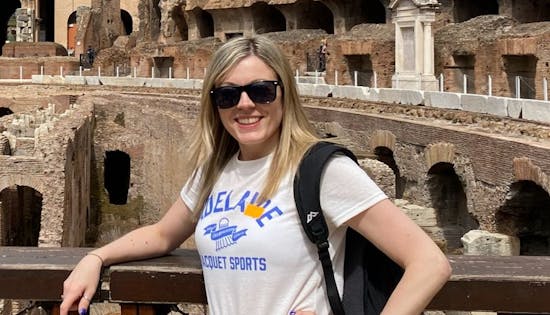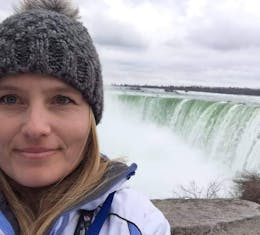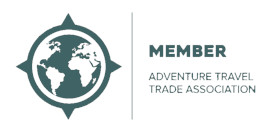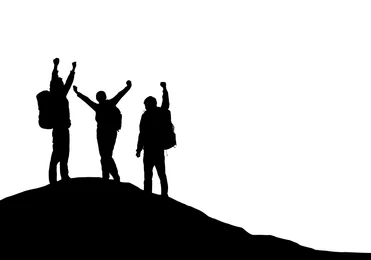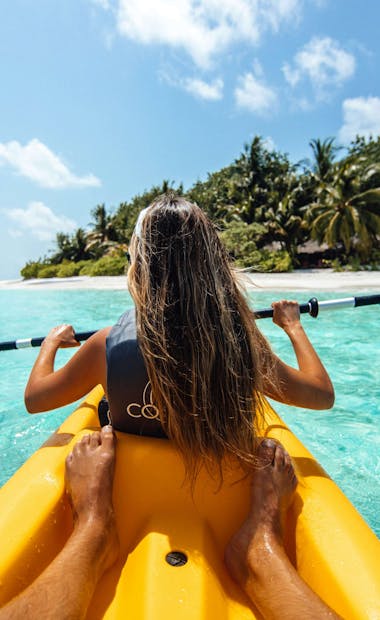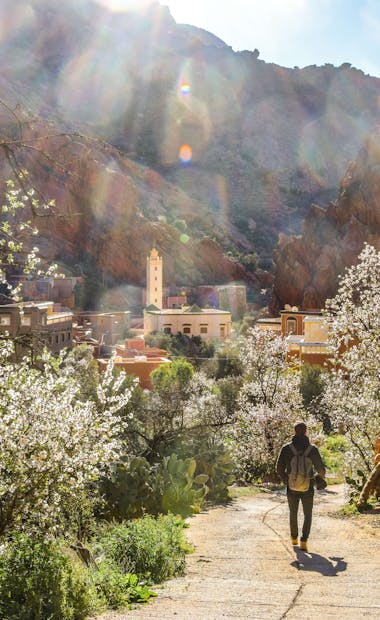
The Atlas Mountains
Trek through the Atlas Mountains to see sunrise from North Africa’s highest peak
Popular tours
- Save31%
 View Tour
View TourLocal Living Morocco–Atlas Mountains - 7 Days
- Marrakesh to Marrakesh
- Age group: 12 - 100
- Max group size: 12
Was:£599From£415 - Save9%
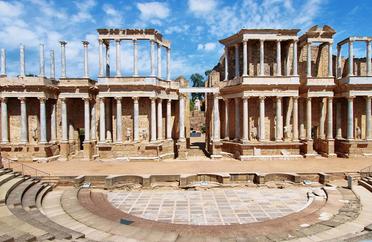 View Tour
View TourAndalucia to the Atlas Mountains - 12 Days
- Madrid to Madrid
- Age group: 0 - 99
- Max group size: 50
Was:£1,815From£1,651 - Save22%
 View Tour
View TourCycle Morocco - Atlas to the Sahara - 8 Days
- Marrakech to Marrakech
- Age group: 16 - 79
- Max group size: 16
Was:£1,175From£916 - Save26%
 View Tour
View TourHiking Morocco: The High Atlas Mountains - 9 Days
- Marrakesh to Marrakesh
- Age group: 12 - 100
- Max group size: 14
Was:£849From£630  View Tour
View TourImlil and Azzaden - 2 Day Atlas Valley Trek
- Marrakesh to Marrakesh
- Age group: 18 - 70
- Max group size: 12
From£208- Save1%
 View Tour
View TourFamily Atlas Mountain and Sahara Adventure - 8 Days
- Marrakech to Marrakech
- Age group: 7 - 79
- Max group size: 16
Was:£910From£901
The Atlas Mountains
Welcome to the majestic world of The Atlas Mountains, where nature's grandeur and breath-taking landscapes intertwine to create an unforgettable adventure. Nestled in the heart of North Africa within Morocco, The Atlas Mountains stand tall as a symbol of awe-inspiring beauty and an oasis of serenity. As you embark on your journey through these rugged peaks, prepare to be captivated by the allure of the unknown and the enchantment of ancient traditions.
For avid trekkers and wanderers alike, The Atlas Mountains offer an unrivalled playground of exploration. With its rugged terrain and towering summits, this mountain range presents an array of thrilling hiking trails and treks that are bound to leave you spellbound. Strap on your boots and venture forth to discover hidden valleys, cascading waterfalls, and picturesque Berber villages that have stood the test of time.
One of the main attractions of The Atlas Mountains is the renowned Mount Toubkal, North Africa's highest peak. Towering at an elevation of 4,167 meters (13,671 feet), conquering its summit is a testament to your resilience and determination. The trek to Mount Toubkal offers an extraordinary experience, taking you through rugged landscapes, snow-capped peaks, and panoramic vistas that will leave you in awe of nature's grandeur.
Beyond Mount Toubkal, the valleys of The Atlas Mountains beckon with their verdant beauty. Immerse yourself in the lush valleys of Ourika, Imlil, and Ait Bouguemez, where vibrant terraced fields and fragrant orchards dot the landscape. Here, you can witness the traditional way of life of the Berber people, whose hospitality and warm smiles will make you feel right at home. Savor the flavors of authentic Berber cuisine, explore traditional markets, and gain insights into the rich cultural heritage that has shaped these mountains for centuries.
As you traverse the rugged paths, you'll encounter mesmerizing waterfalls that cascade down rocky cliffs, creating a symphony of natural beauty. The Cascades d'Ouzoud, with their dramatic 110-meter (360-foot) drop, stand as a testament to the power and wonder of nature. Feel the mist on your face as you stand in awe of this majestic display, and let the tranquility of the surrounding landscape wash over you.
But the allure of The Atlas Mountains extends beyond its natural wonders. The region is steeped in history and cultural significance, evident in the ancient Kasbahs that adorn the landscape. Visit the famous Kasbah Ait Benhaddou, a UNESCO World Heritage Site, and step into a world frozen in time. Marvel at the intricate clay architecture, the winding alleys, and the panoramic views that transport you back to the days of caravans and desert traders.
In summary, a visit to The Atlas Mountains promises an unforgettable experience for adventurers and nature enthusiasts alike. Lose yourself amidst the rugged beauty of the mountains, immerse yourself in the rich cultural heritage, and embark on treks that will challenge and inspire you. Let the Atlas Mountains be your gateway to a world of wonder, where nature's splendour and human history converge to create an extraordinary journey of the senses.
When is the best time to visit the Atlas Mountains?
The best time to visit the Atlas Mountains largely depends on your preferences and the activities you wish to engage in. However, the region experiences distinct seasons that can impact your experience.
For trekkers and outdoor enthusiasts, the ideal time to visit the Atlas Mountains is during the spring (April to May) and autumn (September to November) seasons. During these months, the weather is generally pleasant with mild temperatures, making it ideal for hiking and exploring the rugged terrain. The landscapes come alive with blooming flowers and lush vegetation, adding an extra touch of beauty to your journey.
During the summer months (June to August), the Atlas Mountains can get quite hot, especially in the lower elevations. However, if you plan to engage in high-altitude treks or climb Mount Toubkal, the cooler temperatures at higher elevations can provide respite from the heat. Just make sure to pack appropriate gear and stay hydrated.
Winter (December to February) in the Atlas Mountains brings snowfall and colder temperatures, especially in the higher regions. While this period may not be ideal for extensive trekking, it offers a unique opportunity for winter sports enthusiasts. The mountains transform into a winter wonderland, providing a picturesque backdrop for activities like skiing and snowboarding.
It's important to note that weather patterns can vary, and it's always advisable to check the specific conditions before planning your trip. Additionally, popular trekking routes and accommodations may be busier during peak seasons, so consider your preferences for crowd levels and plan accordingly.
Ultimately, no matter the time of year you choose to visit the Atlas Mountains, you'll be greeted with stunning natural beauty and a sense of awe that is bound to make your journey unforgettable.
How fit do I need to be to trek in the Atlas Mountains?
Trekking in the Atlas Mountains requires a reasonable level of fitness, as the terrain can be challenging and the altitude can pose additional physical demands. The specific fitness requirements will vary depending on the trekking route you choose and the level of difficulty you opt for. Here are some general guidelines to help you assess your fitness level:Endurance: Trekking in the Atlas Mountains often involves long days of hiking, sometimes for several hours at a stretch. Building your endurance through regular cardio exercises such as hiking, jogging, or cycling can greatly enhance your trekking experience.
Strength and Stamina: The rugged terrain of the mountains requires strength in your legs and core muscles. Engaging in activities like stair climbing, squats, lunges, and core exercises can help build the necessary strength and stamina.
Altitude Acclimatization: Some treks in the Atlas Mountains, especially those that include Mount Toubkal, reach higher altitudes. It is important to acclimatize to the altitude gradually to prevent altitude sickness. Preparing by participating in shorter hikes at lower elevations beforehand can help your body adjust to the altitude.
Flexibility: Maintaining flexibility is crucial for trekking, as it helps prevent injuries and allows for better movement on uneven terrain. Incorporating stretching exercises and yoga into your fitness routine can help improve flexibility.
It's always recommended to consult with a healthcare professional before undertaking any physically demanding activities, especially if you have any pre-existing medical conditions or concerns.
Furthermore, it's worth noting that there are various trekking routes available in the Atlas Mountains, ranging from relatively easier paths to more challenging routes. It's important to choose a trek that aligns with your fitness level and experience. Hiring a local guide or joining an organized trekking group can provide valuable assistance, support, and local knowledge to ensure a safe and enjoyable experience.
Remember, trekking in the Atlas Mountains is not solely about physical fitness. It's also about mental strength, perseverance, and embracing the journey itself. With adequate preparation, determination, and a positive mindset, you can embark on an incredible adventure through the stunning landscapes of the Atlas Mountains.
What are the most popular hiking routes in the Atlas Mountains?
The Atlas Mountains offer a wide range of hiking routes that cater to different levels of difficulty and preferences. Here are some of the most popular hiking routes in the Atlas Mountains:
Toubkal Circuit: The Toubkal Circuit is a challenging trek that takes you around Mount Toubkal, the highest peak in North Africa. This multi-day trek allows you to explore remote valleys, traverse high mountain passes, and soak in breath-taking panoramic views. The trek usually starts and ends in Imlil and offers a rewarding experience for experienced hikers.
Mount Toubkal Summit: For those seeking an exhilarating adventure, climbing Mount Toubkal itself is a popular choice. This challenging ascent takes you to the summit of the highest peak in the Atlas Mountains, rewarding you with sweeping vistas of the surrounding landscapes. The trek to the summit usually starts from Imlil or the village of Aroumd.
Ait Bouguemez Valley: Known as the "Happy Valley," Ait Bouguemez offers a more moderate and picturesque trekking experience. The valley is dotted with traditional Berber villages, terraced fields, and lush greenery. Trekking through this valley allows you to immerse yourself in Berber culture while enjoying the natural beauty of the Atlas Mountains.
Imlil to Tacheddirt: This relatively easier trek starts from the village of Imlil and takes you to the charming village of Tacheddirt. Along the way, you'll pass through beautiful valleys, encounter traditional Berber communities, and enjoy stunning views of the surrounding mountains. It's a great option for those seeking a shorter and less strenuous hiking experience.
Ourika Valley: Located just a short distance from Marrakech, the Ourika Valley offers an accessible hiking route for those with limited time. The trek takes you through scenic landscapes, past traditional villages, and towards the Setti Fatma Waterfalls. It's a popular day trip destination for visitors looking to experience the beauty of the Atlas Mountains without committing to a multi-day trek.
These are just a few examples of the many hiking routes available in the Atlas Mountains. It's worth noting that hiring a local guide or joining an organized trekking group can provide valuable support, local knowledge, and ensure your safety throughout the journey. Whether you're a seasoned hiker or a beginner, the Atlas Mountains offer a diverse range of hiking experiences that cater to all levels of fitness and adventure.
What should I pack?
When preparing for a hiking trip in the Atlas Mountains, it's important to pack wisely to ensure your comfort, safety, and enjoyment throughout the journey. Here is a list of essential items to consider for your packing checklist:
Hiking Gear:
- Sturdy, comfortable hiking boots with good ankle support.
- Backpack with a capacity suitable for the duration of your trek.
- Hiking poles for added stability and support on uneven terrain.
- Lightweight and quick-drying clothing suitable for layering.
- Waterproof and breathable outer shell jacket and pants.
- Hat or cap for sun protection.
- Sunglasses with UV protection.
- Lightweight and moisture-wicking socks.
- Sleeping bag (if camping) and camping gear if necessary.
Navigation and Safety:
- Detailed topographic map or GPS device for navigation.
- Compass for orientation.
- Headlamp or flashlight with spare batteries.
- First aid kit, including necessary medications, bandages, and blister treatments.
- Whistle for emergencies.
- Sunscreen with a high SPF rating.
- Insect repellent.
- Portable water filter or water purification tablets.
- Personal locator beacon (PLB) or satellite phone (for remote areas and longer treks).
Clothing and Accessories:
- Moisture-wicking base layers to regulate body temperature.
- Insulating layers for cooler temperatures.
- Lightweight and breathable pants or shorts.
- Long-sleeved shirts for sun protection.
- Fleece jacket or sweater for layering.
- Warm hat and gloves for higher elevations or colder months.
- Extra set of clothing for changing weather conditions.
- Swimwear (if there are opportunities for swimming or hot springs).
- Quick-drying towel.
Personal Essentials:
- Water bottles or hydration bladder.
- Snacks and high-energy food for the duration of your trek.
- Personal toiletries and hygiene products (biodegradable options are recommended).
- Personal identification, travel documents, and any required permits.
- Cash or credit cards for emergency situations and purchases in local villages.
- Mobile phone and charger/power bank.
- Camera or video equipment to capture the stunning landscapes.
- Entertainment (books, music, etc.) for downtime.
It's important to pack light while ensuring you have all the necessary essentials. Consider the duration and difficulty of your trek when deciding what to bring. Additionally, check the weather forecast and consult with local guides for any specific recommendations based on the season and region you'll be exploring in the Atlas Mountains.
Remember to always prioritize safety, comfort, and respect for the environment during your hiking trip.
When trekking in the Atlas Mountains will my luggage be transported for me?
When trekking in the Atlas Mountains, whether or not your luggage will be transported for you depends on the specific trekking arrangements you make. Here are a few scenarios to consider:
Guided Group Treks: If you join a guided group trek organized by a tour company or local guides, they typically arrange for porters or mules to carry the majority of the camping and cooking equipment, as well as communal supplies. However, you will usually be responsible for carrying your own personal daypack, which should contain items like water, snacks, extra layers, camera, and other essentials you may need during the day's hike.
Self-Guided Treks with Local Support: In some cases, you may choose to undertake a self-guided trek with the assistance of local guides or support staff. Depending on the arrangements, you may have the option to hire porters or mules to carry your larger backpack or duffle bag. This allows you to hike with a lighter daypack and ensures that your main luggage is transported between the overnight stops or campsites. This can be particularly beneficial for longer treks or if you plan to camp along the way.
Day Hikes and Short Excursions: If you are embarking on day hikes or short excursions in the Atlas Mountains, where you return to a base or a guesthouse each evening, you would typically be responsible for carrying your own daypack with essentials. Your main luggage can be left at your accommodation during the day.
It's important to clarify the logistics and luggage arrangements with your tour operator, local guides, or trekking service provider when making your booking. They can provide specific details about what is included in their services and any additional costs associated with luggage transportation.
Regardless of the arrangements, it's generally recommended to pack light and only bring essential items. This will make your hiking experience more enjoyable and manageable, both for yourself and any porters or animals involved in transporting the luggage.
Who Will Be In My Group?
Many of our trips don’t have a max or minimum age, for adults, at all and travellers will be a variety of ages. In fact, we get lots of feedback saying that people had a fantastic time meeting fellow travellers of various ages and from all different walks of life. It is a really special part of the trek.
If you are looking to go with younger teenagers then some of our operators are happy take this on a case by case basis for 12-18 year olds - just get in touch!
Once you have an idea of the tour and date that you would like to do, we can get in touch with the relevant operator and find out some more information on the demographic of fellow travellers. We won’t be able to give specifics but can often give you a good idea of the makeup of your group.
There are some tours that are specifically geared towards younger travellers - 18-29 year olds and others that have a higher average age.
What are the attractions of Morocco?
Morocco is a country blessed with a diverse array of attractions that cater to the interests of every traveller. From vibrant cities to ancient medinas, stunning landscapes to rich cultural heritage, here are some of the top attractions that make Morocco a captivating destination:
Marrakech: Known as the "Red City," Marrakech is a vibrant and bustling city that offers a blend of history, culture, and sensory delights. Explore the winding alleys of the UNESCO-listed Medina, visit the iconic Jardin Majorelle, marvel at the stunning architecture of the Bahia Palace, and experience the vibrant atmosphere of the bustling Djemaa el-Fna square.
Chefchaouen: Nestled in the Rif Mountains, Chefchaouen is often referred to as the "Blue City" for its striking blue-painted buildings. Stroll through its charming streets, admire the unique architecture, and soak in the peaceful ambiance of this picturesque town.
Fes: Fes is Morocco's oldest imperial city, renowned for its well-preserved medieval medina. Lose yourself in the labyrinthine streets, visit the ancient University of Al Quaraouiyine, explore the colourful tanneries, and immerse yourself in the cultural and intellectual heritage of this historical city.
Sahara Desert: A visit to Morocco is incomplete without experiencing the vastness of the Sahara Desert. Take a camel trek through the golden dunes, spend a night under the starry sky in a desert camp, and witness the breath-taking sunrise or sunset over the ever-shifting sands.
Atlas Mountains: The Atlas Mountains offer a haven for nature enthusiasts and adventure seekers. Embark on treks through the rugged landscapes, visit traditional Berber villages, explore picturesque valleys, and witness stunning waterfalls, such as the Cascades d'Ouzoud.
Essaouira: Located on Morocco's Atlantic coast, Essaouira is a charming coastal town known for its beautiful beaches, laid-back atmosphere, and well-preserved medina. Enjoy fresh seafood, explore the historic ramparts, and witness the windsurfers and kiteboarders taking advantage of the strong coastal winds.
Casablanca: As Morocco's largest city, Casablanca showcases a modern and cosmopolitan side of the country. Visit the iconic Hassan II Mosque, wander along the vibrant Corniche, and experience the blend of traditional and contemporary architecture in this bustling metropolis.
High Atlas Villages: Discover the traditional Berber way of life by visiting the picturesque villages scattered throughout the High Atlas Mountains. Immerse yourself in the warm hospitality, savour delicious traditional cuisine, and witness the stunning mountain landscapes.
Roman Ruins of Volubilis: Step back in time at the ancient Roman city of Volubilis, a UNESCO World Heritage site. Explore the remarkably preserved ruins, including grand villas, intricate mosaics, and imposing arches, offering a glimpse into Morocco's Roman past.
Moroccan Cuisine: Indulge in the flavours of Moroccan cuisine, renowned for its aromatic spices, tagines, couscous, and delectable pastries. Explore the bustling food markets, savour the street food delicacies, and experience the culinary delights that Morocco has to offer.
These are just a few highlights of the many attractions Morocco has to offer. The country's rich history, diverse landscapes, and warm hospitality create an unforgettable journey that tantalizes the senses and leaves travellers with lasting memories.
How high are the Atlas Mountains?
The Atlas Mountains span across several countries, including Morocco, Algeria, and Tunisia. The highest peaks are found in the Moroccan section of the range. The highest peak in the Atlas Mountains is Mount Toubkal, located in the Toubkal National Park in Morocco. Mount Toubkal reaches an elevation of 4,167 meters (13,671 feet) above sea level. It is not only the highest peak in the Atlas Mountains but also the highest peak in North Africa. The range as a whole varies in elevation, with numerous peaks reaching heights above 3,000 meters (9,800 feet). The Atlas Mountains offer breath-taking landscapes, stunning vistas, and challenging treks for outdoor enthusiasts.
Are the Atlas Mountains suitable for beginners?
Yes, the Atlas Mountains offer hiking and trekking routes that are suitable for beginners. While some sections of the range may be challenging and require a higher level of fitness and experience, there are also routes that are more accessible to those with less hiking experience.
For beginners, it is recommended to choose shorter and less strenuous treks that are well-marked and have moderate elevation gains. These routes often pass through picturesque valleys, Berber villages, and offer opportunities to enjoy the stunning scenery of the Atlas Mountains without requiring extensive technical skills or mountaineering experience.
It's important to assess your own fitness level and choose a trek that matches your capabilities. Additionally, hiring a local guide or joining an organized trekking group can provide valuable support, local knowledge, and ensure your safety during your trek in the Atlas Mountains.
By selecting the right route and being prepared with appropriate gear and physical fitness, beginners can have a rewarding and enjoyable hiking experience in the Atlas Mountains.
Is it safe to hike in the Atlas Mountains?
Hiking in the Atlas Mountains can generally be considered safe, but it's always important to exercise caution, be prepared, and take necessary precautions. Here are some key points to keep in mind:
Local Guides: Hiring a local guide or joining an organized trekking group can enhance safety and provide valuable local knowledge. Local guides are familiar with the terrain, weather conditions, and potential risks, which can help ensure a safer hiking experience.
Weather Conditions: Be aware of the weather forecast and any potential hazards associated with it. The Atlas Mountains can experience sudden changes in weather, including rain, fog, or snowfall, particularly at higher elevations. Stay informed and adjust your plans accordingly.
Trail Conditions: Stick to established trails and avoid venturing into unknown or unmarked areas. Pay attention to any signage or warnings along the trail. Some trails may require specific skills or equipment, so choose routes that are appropriate for your experience level.
Physical Fitness and Preparation: Assess your own fitness level and choose a hike that matches your capabilities. It's essential to be adequately prepared with appropriate hiking gear, sufficient water, snacks, and clothing suitable for the terrain and weather conditions.
Hydration and Nutrition: Stay hydrated by carrying enough water and replenishing it regularly during your hike. Pack nutritious snacks or meals to maintain your energy levels throughout the trek.
Safety Equipment: Carry essential safety equipment, such as a map or GPS device, a compass, a first aid kit, a headlamp or flashlight, a whistle, and a mobile phone with emergency contact numbers. Consider carrying a personal locator beacon (PLB) or satellite phone for remote areas.
Wildlife and Flora: Be aware of the wildlife and flora that you may encounter during your hike. Some regions of the Atlas Mountains are home to various animal species, including snakes, so it's advisable to stay on marked trails and be cautious.
Local Customs and Respect: Familiarize yourself with local customs and respect the cultural practices of the communities you encounter during your hike. Engage with the local population respectfully and follow any guidelines provided by your guides or local authorities.
As with any outdoor activity, there are inherent risks involved in hiking, and it's crucial to take personal responsibility for your safety. By being well-prepared, informed, and using common sense, you can enjoy a safe and memorable hiking experience in the Atlas Mountains.
Can I visit the Atlas Mountains on a day trip from Marrakech?
Yes, you can visit the Atlas Mountains on a day trip from Marrakech. The proximity of Marrakech to the Atlas Mountains makes it a popular starting point for exploring the region. There are several options for day trips that allow you to experience the beauty of the mountains without committing to a multi-day trek. Here are a few popular destinations for day trips from Marrakech to the Atlas Mountains:
Ourika Valley: Located about an hour's drive from Marrakech, Ourika Valley is a picturesque valley known for its stunning landscapes, traditional Berber villages, and cascading waterfalls. You can take a day trip to explore the valley, visit local markets, hike along the river, and immerse yourself in the Berber culture.
Imlil: Situated in the High Atlas Mountains, Imlil is a gateway to Mount Toubkal and offers breathtaking views of the surrounding peaks. You can take a day trip to Imlil to hike in the foothills, visit Berber villages, and enjoy the tranquility of the mountains.
Ouzoud Waterfalls: Although not located in the Atlas Mountains themselves, the Ouzoud Waterfalls are a popular day trip option from Marrakech. These impressive waterfalls, located about 150 kilometers (93 miles) northeast of Marrakech, offer a refreshing escape and an opportunity to enjoy nature in a stunning setting.
Day trips from Marrakech to the Atlas Mountains are typically organized through local tour operators or travel agencies. They provide transportation, experienced guides, and itineraries tailored to make the most of your limited time. It's advisable to book your day trip in advance to secure your spot and ensure a smooth and enjoyable experience.
Keep in mind that while a day trip allows you to experience the beauty of the Atlas Mountains, it may not provide the same level of immersion and exploration as a multi-day trek. If you have more time available, consider extending your visit to the mountains for a richer and more in-depth experience.

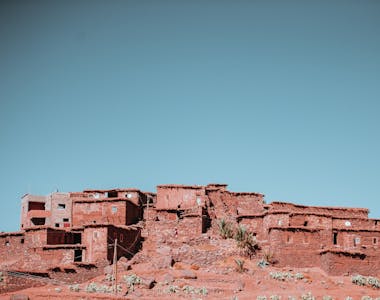
Book With Confidence
Monthly Payments
Spread the costs with no interest or additional fees
Best Price Guarantee
We won't be beaten on price. If you find this adventure at a lower price please get in touch!
Reserve now & pay later
Reserve your adventure today and pay later, free of charge
ATOL protected
Book with confidence
Hold your space today, for free
or book your trip with a deposit and then pay the rest in instalments.
Reserve your flights with us
Add flights to your booking and we'll take care of the rest. You'll get 24/7 support from our team & ATOL protection.
Speak to our experts
Call or email our expert team to find out more and help with ideas and planning.
